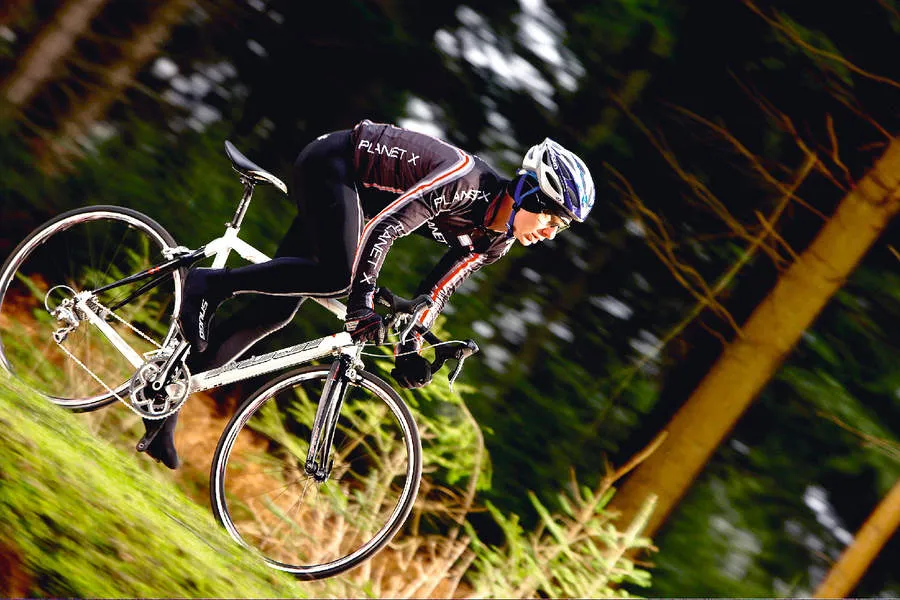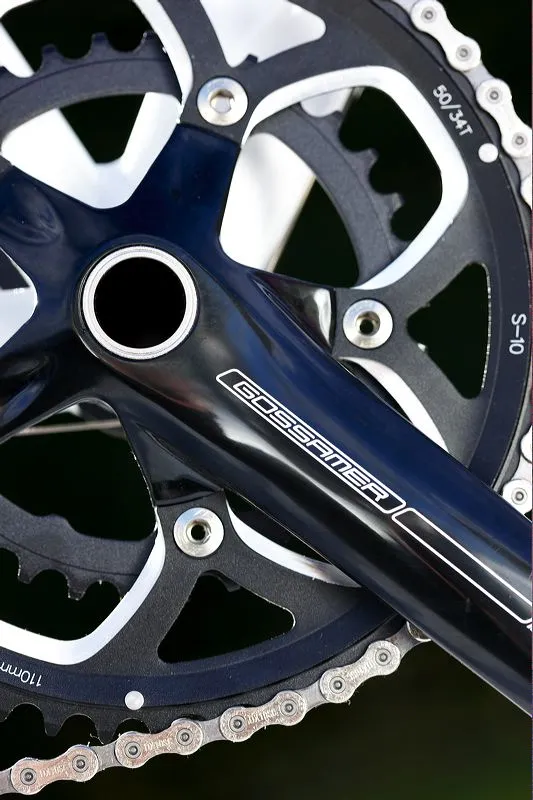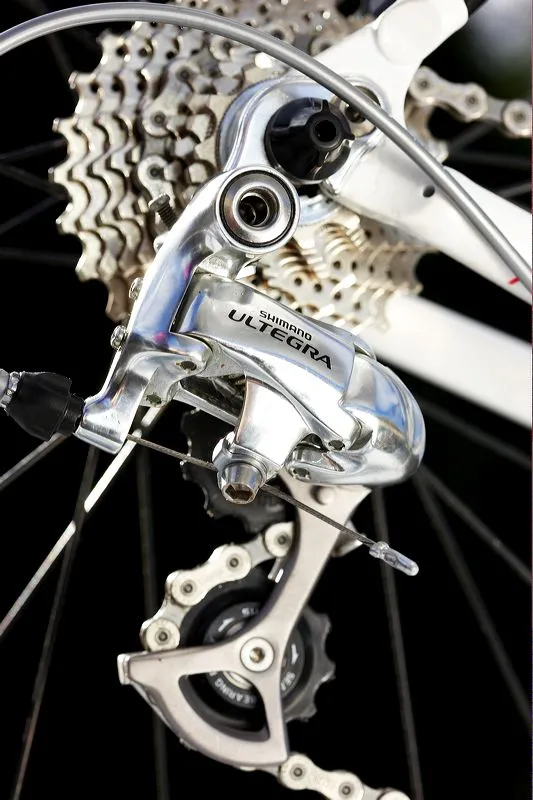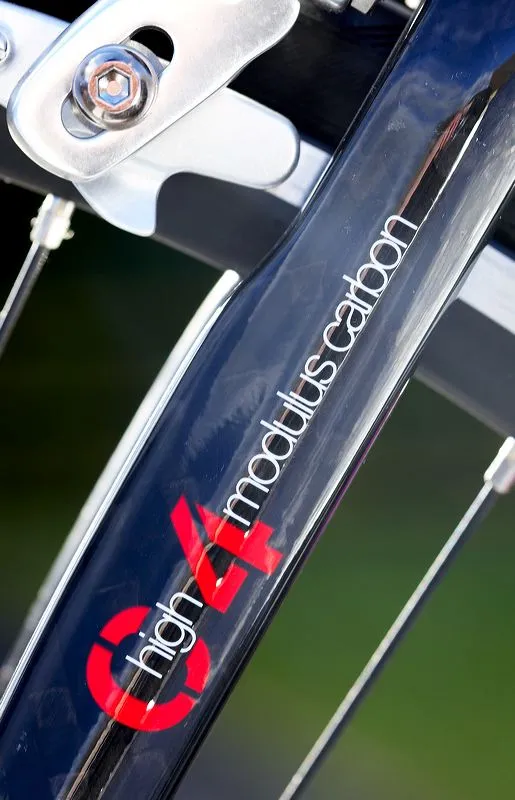Although not that well known on these shores, the once-Japanese company Fuji are reinventing themselves with a US design base and Taiwanese manufacturing expertise. From their late 19th century beginnings, through their Olympic glory days of the 60s to the present, they've often been a step ahead of the others with innovations like triple butted tubing and the early use of titanium.
Ride & handling: Unassuming, with controlled and stately manners
With just a touch of bottom bracket flex, the Fuji keeps things moving briskly when going uphill, though the steady handling fights you a bit when you come out of the saddle. It proves steady in the sketchiest of downhills – as long as surfaces are dry.
The low head tube and classic square frame dimensions give a great, racy position, not only in the drops but in the hoods and flats too. Handling improves and sharpens up when you drop in, due to the added leverage of a wider arm and hand stance, which speeds up response times.
The trouble is, although the Fuji is a winner in the comfort stakes, with the curved carbon forks and carbon wishbone soaking up buzz, bumps and cobbles, the overall feel falls short of generating the kind of excitement that can be such a complement to a comfortable ride. Despite its racy looks, this reassuring machine is more of a cruiser than an out and out racing beast.
Chassis: Aluminium and carbon team up for great comfort, but frame lacks spark
A hefty Power Diamond down tube dominates the frame, with clean welds joining the main triangle to a machined head tube and an alloy/carbon rear end.
The most aesthetically pleasing element, though, is the gracefully curved carbon bladed fork, with a reliable 1 1/8in aluminium steerer tube. Extra stout forged dropouts front and rear keep the wheels firmly anchored.
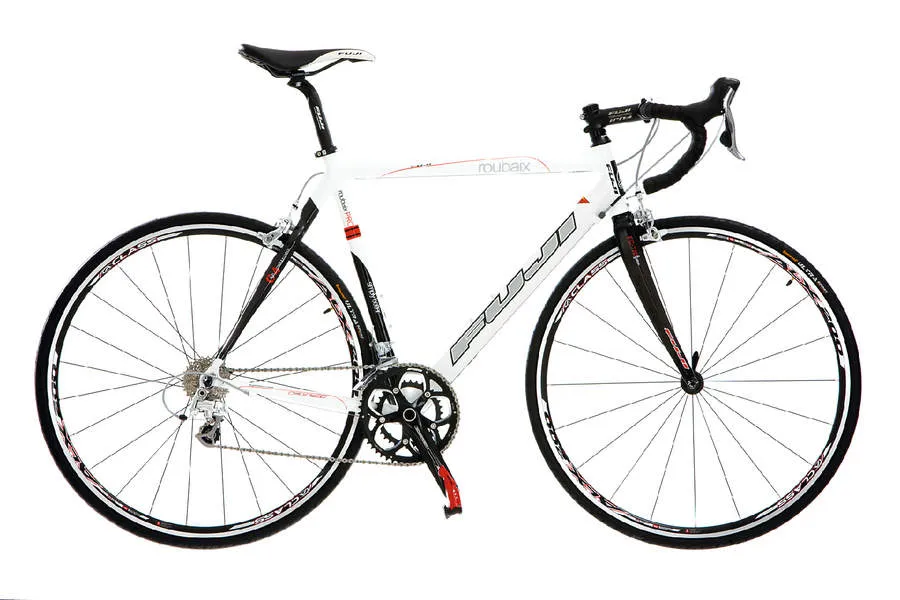
Equipment: Tasty variety and quality, but the tyres are a total buzzkill
Fuji adopt the pick’n’mix approach and achieve a high level of spec considering the Roubaix Pro's £880 price.
The FSA cranks feel distinctly further apart than normal, and a quick measure confirms them to be just that little bit wider than the 146mm or so found on Shimano and Campagnolo doubles.
The ‘sportive’ gear ratios aren’t very sporty, with a big split halfway through: the second half of the cluster is too widely spaced, leaving testers feeling either spun out or mashing gears with even the slightest change of terrain or wind, and often unable to maintain the sweet spot in a preferred cadence zone. To be fair, fitness levels and personal taste will prejudice this opinion.
The Shimano elements of derailleurs, brakes and shifters performed flawlessly, in combination with the Fuji bar and stem which deserve special praise for their ergonomic shape, correct amount of shock absorption and lack of torsional flex.
A 27.2mm-diameter forged Fuji seatpost with thin walled aluminium tubing and a well proportioned and padded Fuji saddle make this a comfortable bike, aided by unassuming but effective pre-built wheels by Alex.
With rather plain loose ball-and-cone hubs, laced into machined aero rims with black genuine DT spokes, these wheels did their job without attracting attention, and should provide thousands of uneventful miles thanks to straightforward mechanicals and decent seals.
Out on the open road, the Conti Ultra Sport tyres are tough and durable, but scary as anything thanks to what is essentially a slick rubbery tread. While adding a measure of comfort, they’re a blunt instrument that doesn’t inspire confidence, especially on muddy country lanes.


